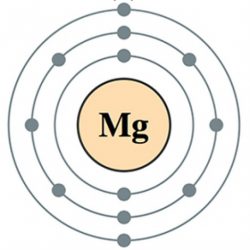 So, how are you feeling today?
So, how are you feeling today?
Kids stressing you out? Leccy bill just come in? Had a row with your partner? Got a headache? All these events will give you, in order of importance – stress, stress, stress and more stress! Below are 10 ways to relieve stress.
Stress is one of the biggest killers and causes of disease known to man. It comes in many guises, or shall I say, disguises and is not limited to losing your job or having to look after a sick child or elderly relative.
Hidden stressors
Many of the stressors we have to cope with are hidden and not even realized by us. Inflammation is a serious stressor which we often don’t know we have. Arteries that are insidiously getting blocked and toxins that are building up in our bodies, calcifications that are being laid down in our soft tissue and organs.
 Our amazing bodies
Our amazing bodies
These stressors are debilitating but most of the time we know nothing about them, until they become so severe that we start to feel unwell and off colour. Your body is an amazing piece of biological equipment and it will do its best to keep you in good fettle, until it gets so sick, it can’t keep up the pretence any more and one day you know there’s something wrong. By this time, the condition or conditions you’re suffering from are probably well established.
What exactly is stress?
Stress is a part of everyday life and our modern way of living keeps us stressed for long periods at a time and this is the problem. When our body is under stress, we release stress hormones specifically epinephrine (adrenaline), cortisol and aldosterone. This is a natural response but the body does not distinguish between you being chased by a wild animal or being late taking the kids to school!
 Fight-Flight response
Fight-Flight response
The release of these hormones is a basic survival mechanism giving you extra strength to muscles including the heart muscle, so you have the best chance of facing an attacker (or the traffic). We call it the ‘fight-flight’ response. Once the perceived danger is over, the hormones will disperse and the body will return to normal. Trouble is, we’re always instigating this response with our continual daily stress. Most of us have chronic stress so our stress hormones are forever being triggered. I give a few examples of chronic stress below. If you suffer from just a few of these problems, you will be chronically stressed.
- Marriage breakup
- Bereavement
- Having and caring for a sick child

- Caring for an elderly parent
- Having a high powered job
- Being in the services
- Having a partner in the services
- Being an only parent
- Having an illness/inflammation
- Having insomnia
- Being pregnant
- Having a newborn
- Doing regular intensive exercise/being an athlete
- Living in a hot climate
- Living in a cold climate
- Having poor living conditions
- Having a problem with neighbours

- Eating junk food and sodas
- Taking pharmaceutical or recreational drugs
- Drinking too much alcohol
- Moving house
- Regular caffeine intake
- Living alone
- Most importantly, not having the nutrition to cope with the above, the most vital being Magnesium
What has Magnesium got to do with it?
Everything! Every time the stress hormones are triggered, magnesium is necessary to give the energy to activate the fight-flight response. Each one of our 37.2 trillion cells produces and consumes ATP (adenosine triphosphate) a substance which is the energy currency of our bodies. It fuels everything within us. Without it, we die. But ATP cannot work on its own. It needs a cofactor to join with it and that cofactor is magnesium.
Mg-ATP
Magnesium ions bind to the ATP molecules forming a compound known as Mg-ATP. Magnesium activates ATP and without it our energy ‘batteries’ cannot be accessed. Mg is known as the ‘spark of life’ for good reason! When researchers and scientists refer to ATP it is the activated form which is Mg-ATP. Unfortunately, most of the time the Mg prefix is dropped. This is to the detriment of understanding how vital magnesium is for the body. Activated ATP should always be referred to as Mg-ATP.
 Stressy conditions for a caveman
Stressy conditions for a caveman
In the times of our ancient ancestors, stress would be more related to staying alive. Chasing your dinner on a daily basis or being chased by a wild animal such as a cave bear. Perhaps coming across a ferocious cave lion. They were the largest carnivores of ice age Britain, standing 4.5ft (1.4m) tall at the shoulder. This would be the type of stress a caveman would have to contend with. But chronic psychological or social stress was likely not such a problem. Finding enough money to pay the gas bill or getting little Johnnie to do his homework is not applicable to stoneage man. Life was simple. Up at dawn, hunt, fish, gather nuts, roots, berries and at dusk, eat, relax and sleep.
No junk food for stoneage man
He may have had to cope with being hungry and cold sometimes, but he would not be eating trans fats, junk food and sodas. Apart from their healthy eating habits, ancient man probably lived in small harmonious family groups. The young were cared for by all the adults. Everyone in the group would have their tasks to do. The elders were looked up to for leadership and wisdom. It would be uncommon for someone elderly to live on their own. It is impossible to know for sure how our ancestors really lived but we can be sure they didn’t have the same day to day chronic stress levels that we suffer now.
 Stressy conditions now
Stressy conditions now
For us modern day humans, the stress we encounter is most likely much more damaging than that experienced by our ancestors. Why is this? Because we are under chronic stress all the time. Not only the stress of modern day living, but the stress we put our bodies under regarding our junk food diet and long term emotional and psychological issues. Our stress is continuous. As soon as we wake, our day of tension begins. If we didn’t get much sleep, we would have been anxious during the night, especially if we’d been drinking most of the previous evening and finishing off with a late night curry or pizza.
Loneliness
Our caveman counterpart would have been too tired to party most of the night and would be up at dawn to go hunting for food. Humans are gregarious animals and our ancestors are known to have lived in groups. Today, many people live alone, especially the elderly. Not having the company of others for much of the day is not natural for humans. Today, the loneliness that many have to endure makes for a continuously stressful life. Being lonely will have a detrimental effect on your health. It is normal for humans to be social.
 My 10 tips for relieving stress
My 10 tips for relieving stress
So here are my 10 ways to relieve stress, starting with the most important – make sure you are replete in Magnesium.
- Take a good quality Mg supplement like Ionic Magnesium.
- Always make time every day to relax for a while. Make sure you’re not working on your computer and try and turn off the phone, I know you’re addicted, but do your best. Going for a walk and getting some fresh air can often lift your mood and calm you down. Perhaps just sitting with your eyes closed listening to some relaxing music. Make sure, if you can, that you’re not disturbed during your down time.
- If you’re an insomniac, Mg will definitely help you sleep. Don’t watch TV or use the computer an hour before bedtime and don’t eat or drink late. If you go to bed at 11pm, don’t eat after 8pm. Take one of your Mg doses in the evening to aid restful sleep.
- Avoid caffeine, especially after teatime, it can stop you sleeping as can milk or other calcium drinks. Calcium does the opposite to Mg, it is the tension mineral whereas Mg is the relaxation mineral.
- Don’t overdo the exercise regime. Unless you’re in training, getting 15 minute intensive workouts 3-4 times a week is enough to keep most people fit. Don’t exercise before bed, it will stop you feeling sleepy.
 Write everything down that worries you and make a list of things to do. This will help take the anxiety from your mind and lessen your stress. Mg is a natural anti depressant and will lighten your mood and reduce stress levels. With it you can cope better with every day stressors.
Write everything down that worries you and make a list of things to do. This will help take the anxiety from your mind and lessen your stress. Mg is a natural anti depressant and will lighten your mood and reduce stress levels. With it you can cope better with every day stressors.- Take a nice hot bath and put in a couple of cups of Epsom salts (Mg sulphate). If you haven’t got time for a bath, try a foot soak instead, again with some Epsom salts. This is another way of taking in Mg. It easily gets absorbed through the skin.
- Get your partner to give you a neck massage and return the favour. A foot massage is also very relaxing.
- Try some meditation or yoga. There are plenty of websites to help you. Here’s one with 10 poses for stress relief.
- Finally, change your diet to include healthy fresh foods like vegetables, a few fruits, nuts and seeds and as much organic meat and fish as you can afford. Make an effort to cook more at home. Use only healthy fats like extra virgin olive oil, organic coconut oil and avocado oil. There are plenty of recipes on the web for simple, quick but nourishing meals for busy Mums.
- I know I said ten tips but just have a look at this little video. This is my favourite clip and I put it into many of my posts. It gives you an idea how your cells work with regards to your Mg:Ca ratio which should be 1:1. Calcium is abundant in our diet, so much so that Mg intake is usually insufficient to counteract the Ca we consume and keep the two minerals in balance. See what happens when Mg is deficient.
With all the above tips under your belt, you will start to feel more chilled and able to cope. This will do wonders for your general health and you will start to recognise when your stress levels rise to unacceptable levels. You will be in control and you will be able to reduce your stress and help your family to do the same. The most important advice I can  give you is to make sure your Mg levels our replete. Don’t forget, stress will deplete Mg at an alarming rate. If you know you will be under extra stress, up your Mg intake to help you cope.
give you is to make sure your Mg levels our replete. Don’t forget, stress will deplete Mg at an alarming rate. If you know you will be under extra stress, up your Mg intake to help you cope.
Please add your input by commenting on this post. I would love to hear from you and I always respond to comments. Ches
Spread the word!


Wow gr8t article and very nice comments and replys. I have reached a turning point in that I will use mag for life. I’ve tried oxide, threonate, bisglycinate and malate. I’m going to next try chloride. I’ve been preaching mag for the last month!
Started sporadically but now since more regularly notice leg cramps come back if I don’t take it.
Thanks for this article.
Hi there Lynx and thanks for reading the article. I am very gratified that you are on magnesium. Trying the different types of Mg salts is a good way to get the one just right for you. The oxide will only give you around 4% bioavailability, the rest will go through you, great for constipation. The Mg citrate, especially the powder form, is a gentle laxative and is very bioavailable. Great for kids who sometimes get a little bunged up with the rubbish they eat. You can sprinkle it on food and it’s tasteless. As for the Mg chloride, ReMag is a good one but very expensive. There’s one on my site which is a little cheaper called Ionic Mg. If you want to be bothered and save money, you can make up your own if you buy a food quality Mg Chloride. Put 125grams of food quality Mg Chloride crystals into a small jug, preferable with volume markings on it. Then put in a smidge of water and stir (it dissolves very quickly). When dissolved, make up the amount with wateer to 250 millilitres (just under 1/2 pint) and put into a clean glass bottle. It will look cloudy at first because of all the air bubbles, but it will settle. This will give you around 96 1/2 teaspoon doses. Take a 1/2 teaspoon in a glass of water twice a day then up your doses as needed. Everyone needs different amounts so it’s a case of trial and error. I take 2 teaspoons, put it in a jug of water and drink it gradually throughout the day. 2 teaspoons amounts to 600mg of elemental Mg. Remember to watch your calcium intake, DON’T take calcium supplements, rely on your diet for calcium. Keep up the good work and spread the word! Ches
I’m using GabaMag at the moment it has 3 forms of magnesium 400mg before going to bed – Apparently magnesium threonate is the new kid on the block with all the benefits so I will give that a go too. Great article by the way
Hi Cisco, The main thing is you’re taking Mg. Yes I’ve heard about Mg threonate but I do prefer Mg Chloride because it is 100% bioavailable and is ready for your cells as soon as you have consumed it. Even so, you use what suits you best, just make sure it is a good quality supplement. Do check you’re not taking too much calcium. Ca and Mg should be ingested at a 1:1 ratio which is very difficult with our modern diet which has an abundance of Ca. Too much Ca can be detrimental and deplete your Mg levels by default. Good health to you and yours, Ches
Hi,
I never knew that magnesium could play a part in relieving stress. I’ll certainly look out for this mineral the next time I shop for vitamins. I’m glad to read that eating more home-cooked meals helps to as I cook almost eveyday. Is there any particular foods that are high in magnesium?
Thanks for your comment Yvonne. Mg has been depleting over the years due mainly to agricultural practices, so foods 100 years ago would be replete in Mg whereas now they are much diminished. Even so, the food most rich today are Foods With High Magnesium. If you do start taking a Mg supplement, avoid Mg oxide which is most commonly produced because it’s cheap. Unfortunately most of it will go straight through you as it’s not very bioavailable at less than 4%. Mg Chloride solution and Mg Citrate powder (gently laxative) are IMHO the best out there. Good health to you and your family. Ches
Hi there,
I found your post very interesting and enlightening. I had no idea that magnesium could help relieve stress. I have been taking magnesium baths sporadically for a while now and have recently taken up yoga. I will have to remember this during stressful times. Thanks for the help!
Hi Shelby and thanks for reading the article. Yes, Magnesium (Mg) is a great stress reliever. It’s antagonist partner is Calcium (Ca). Think of Mg being the calming, relaxing mineral and Ca being the tension and contraction mineral. They have to be balanced to get the correct amount of relaxation and contraction. That’s why so many people with Mg deficiency get cramp or restless leg syndrom, too much Ca, not enough Mg. Ches
Hey Chessie, Stress is the #1 Killer in the world in my humble opinion. Work used to stress me out so much until I found meditation, how to remain quiet and on my own and to detach from every day life for a while through a hobby or music. I find the proper use of Diet and Rest heavily reduce for the effects of stress the most. I’m so glad you mentioned so many ways to remedy this issue, great article!
Thanks Patrick, I’m so glad you’ve got your stress under control, I suspect you’ve noticed a difference in your overall health and well-being. Thanks for the input. Ches
Hi Ches.
I think that anyone will deal with stress at one point, so these 10 tips are actually much more useful than they seem. I think stressful conditions make the #1 reason for our problems, at least that’s in the area where I live. Loneliness can also be an important factor, so if these 2 are combined…it’s pretty clear what happens.
Magnesium supplements seem a really simple way to relieve stress, at least partially. But I really love that tip with the massage, I think it can take away stress in just a few minutes! 😀
Really good tips.
Thanks for your comments Ashley and your input. I definitely agree about the massage, also it helps to keep a close bond with your partner which is an added bonus! Ches